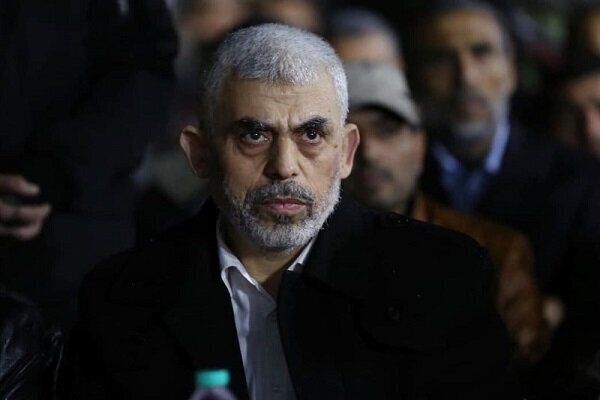
Opinion | Don’t Blame Israel First
WSJ – WHIA
by Daniel Henninger*
As reports come out of the Biden administration about cease-fire talks between Israel and Hamas, bear in mind that the goal of one side in the discussions remains the elimination of the sovereign nation of Israel.
Ali Khamenei, supreme leader of the Islamic Republic of Iran, whose wealth subsidizes Hamas’s military operations, has said, “The perpetual subject of Iran is the elimination of Israel from the region.” It remains so.
Despite the recent emergence of cease-fires as a means to end wars, active military conflicts on this scale typically don’t end this way. More often, cease-fires occur when the opposition has effectively been defeated, as Germany and Japan were in World War II.
The debate over the terms of the current Israel-Hamas cease-fire proposals turns mainly on whether a stop to the fighting would be permanent or temporary, following a hostage and prisoner exchange. Prime Minister Benjamin Netanyahu says he wants to reserve the right to resume fighting against Hamas.
Pointedly, the Biden administration’s proposal for a six-week cease-fire includes the withdrawal of Israeli forces from populated areas in Gaza. Such a departure surely would be interpreted as a victory for Hamas, and in particular for its military leader, Yahya Sinwar.
Mr. Sinwar, the primary architect of the Oct. 7 invasion, who presumably resides inside the Gaza tunnel system, should be seen as the central figure in the conflict, more important to its resolution than Mr. Netanyahu or President Biden.
Recent news reports have suggested that Hamas’s so-called political leadership in Qatar is more amenable to ending the conflict than is Mr. Sinwar, though both insist that Hamas retain a primary governing role in Gaza. Mr. Sinwar apparently believes he has Israel bogged down in a quagmire and that international opinion has turned the Jewish state into a pariah, pushing the Israelis toward a settlement on his terms.
As with the airliner attacks on the U.S. mainland on Sept. 11, 2001, which live on simply as “9/11,” the origin of the Israel-Hamas war has been reduced similarly to “Oct. 7.” While the attack in 2001 was mainly about killing Americans, there is a danger in losing sight of the much broader political purposes of Mr. Sinwar’s Oct. 7 invasion.
When it happened, the assault’s events seemed incomprehensibly heinous—the point-blank shootings of innocents, rapes and the abduction of 252 hostages into Gaza (at least 43 of whom are believed to have died in captivity). It is clear in retrospect that the barbarity was Mr. Sinwar’s long-term strategy.
Hamas’s intention was to force the Israel Defense Forces inside Gaza indefinitely, as it pursued Israel’s longstanding policy of freeing hostages. With Hamas holding the captives inside its virtually impenetrable underground city of tunnels, the Sinwar political calculation was correct that images of Israel’s inevitable assault on Hamas in the neighborhoods of Gaza to free hostages would in time transfer international blame onto Israel, aided, of course, by organized Palestinian-Hamas protest groups across the U.S. and Europe.
And finally by Joe Biden. Asked days ago in an interview if he thought Mr. Netanyahu was prolonging the war out of self preservation, the American president replied, “There is every reason for people to draw that conclusion.” In March, Senate Majority Leader Chuck Schumer said in an astonishing floor speech that Mr. Netanyahu “no longer fits the needs” of Israel. A belief has emerged in what passes for world opinion that if Mr. Netanyahu can be forced out of office, a “moderate” Israeli leadership will emerge, and somehow the war will end.
Rarely discussed, because it is so incredible, is the assumption that any successor Israeli government would allow the Sinwar-led Hamas to emerge intact, in Gaza, with whatever weaponry it has left. The more plausible reality is that if Hamas and its leadership is to avoid execution or assassination, it will have to plot its next steps somewhere other than the Gaza Strip. Perhaps Spain, Ireland or Norway, each of which has recognized a Palestinian state, would offer to take Hamas in.
An additional reality, which no cease-fire proposal can dispel, is that the elimination of Israel will continue as an active goal of Iran, Hamas, Hezbollah and some U.S.-based protest groups. On May 31, another anti-Israel divestment group invaded and closed the Brooklyn Museum, carrying signs with slogans such as “No Normalization of Settler Colonialism.”
The debate over the Israel-Hamas war has fallen deeply into a moral imbalance. The conflict’s grinding status quo—with Palestinians and the Israeli hostages continuing to die—has little hope of changing until the statements of foreign leaders, analysts, the media and not least Mr. Biden and his many translators begin to impose serious political and moral pressure on the man who put this horror in motion: Hamas military commander in chief Yahya Sinwar. Blame him first.
henninger@wsj.com
